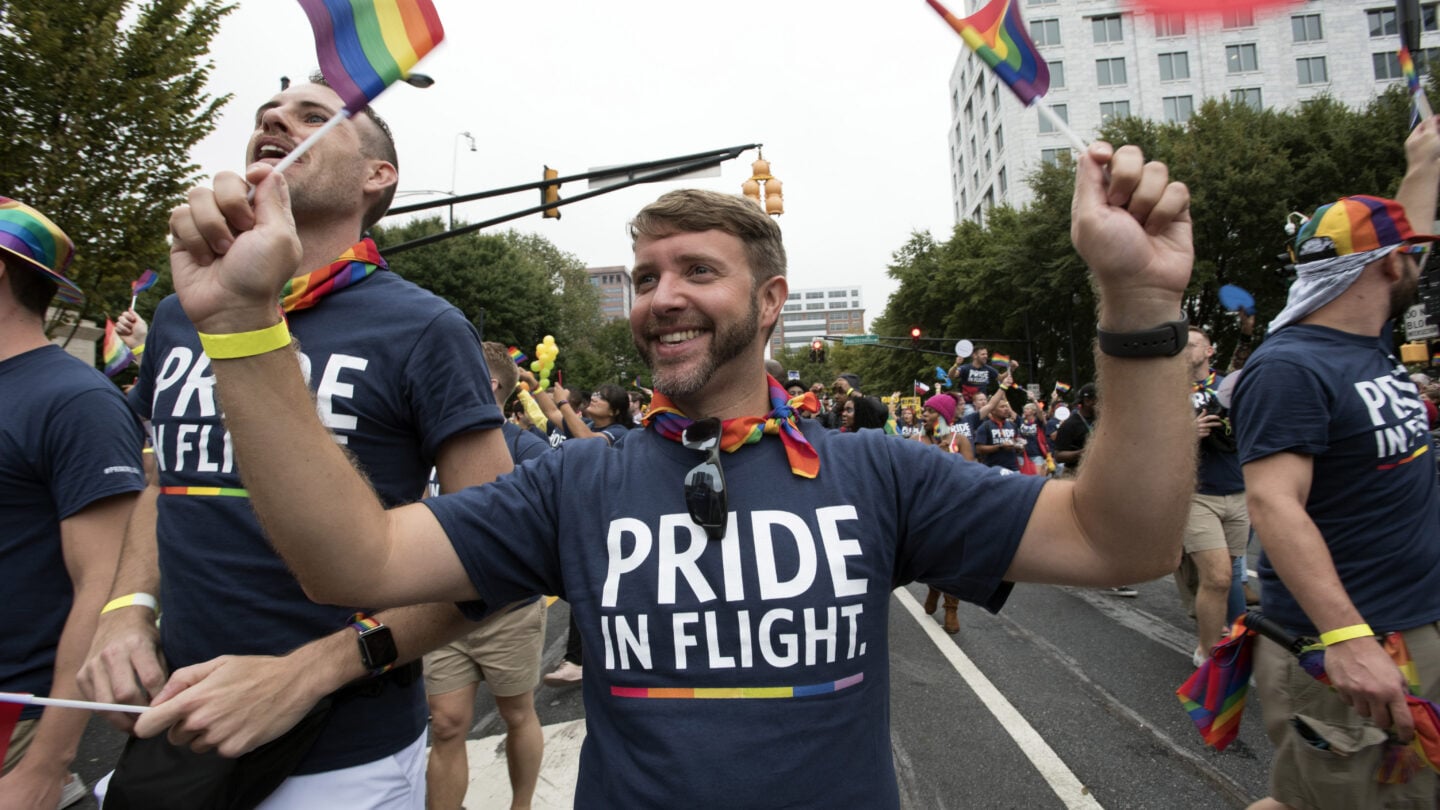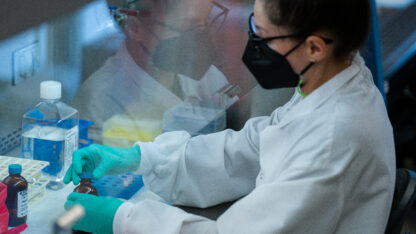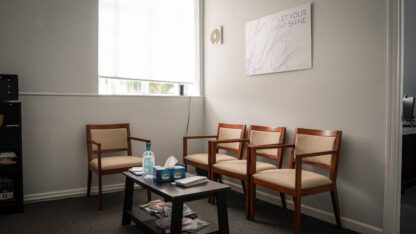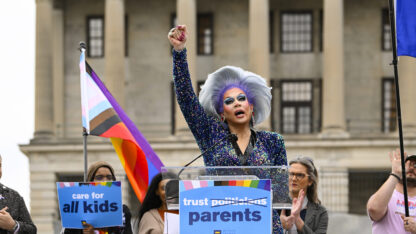Many big companies, including Target and Bud Light’s parent, are still backing Pride events in June despite the minefield that the monthlong celebration has become for some of them.
Target and Bud Light recently came under fire for their efforts to appeal to the LGBTQ+ community, only to come under more fire when they tried to backpedal.
But even as they battle the negative publicity, Target and Bud Light haven’t pulled away from this year’s Pride celebrations. Target is a platinum sponsor of NYC Pride, which requires a $175,000 donation. And Bud Light’s parent Anheuser-Busch is a sponsor of Pride celebrations in Chicago, San Francisco, Charlotte and elsewhere.
Many other big companies are sticking to their sponsorships as well, including PepsiCo, Starbucks, General Motors and Jeep parent Stellantis — all of which said they have been supporting Pride events for decades and aren’t hesitating to back them again this year.
Jeff Gennette, CEO of Macy’s, another major Pride sponsor, told The Associated Press that although the company has received some negative reactions to its Pride merchandise, the company is “very careful about how we put out this product that we select and how we position it on website and in stores” and doesn’t plan to remove any of it.
“We stand by our values and we’re a highly inclusive organization. And we think the bulk of America is as well,” Gennette said.
InterPride, which represents more than 375 Pride organizations globally, said 40% have reported their sponsorship dollars are up 20% or more this year.
The buying power of the LGBTQ+ community is likely too big for companies to ignore. LGBT Capital, a U.K.-based investment company, estimates the U.S. has more than 17 million LGBTQ+ people with more than $1 trillion in spending power.
“For every one customer knocking the display over, there are 10 who love it, and they are going to vote with their feet,” said Allen Adamson, co-founder and managing partner of marketing firm Metaforce.
Anheuser-Busch didn’t respond to questions from the AP about its Pride sponsorships. Target said its focus is “moving forward with our continuing commitment to the LGBTQIA+ community.”
Despite the corporate support, there are clouds hovering over the rainbow.
A majority of negative social media posts about Pride this year are attacking companies for being “woke” and accusing them of sexualizing or grooming children, says RILA Global Consulting, which tracks more than 100 million websites and social media pages per day.
That’s an abrupt change from last year, when a majority of negative social media posts were focused on brands being “inauthentic” and not truly supporting the LGBTQ population even as they expanded their offerings.
In May and June of 2022, there were fewer than 400 posts calling for Pride-related boycotts, RILA said. This year, in May alone there were more than 15,000.
The backlash comes amid a furious and fast-spreading debate over the rights of transgender people. At least 17 states have enacted laws restricting or banning gender-affirming care for minors, most since the start of this year.
That has left many companies feeling jittery.
“I had a sponsor last night say their CEO is skittish about getting political,” said Fernando Lopez, executive director of San Diego Pride. “The fact that they’re even having that conversation is disheartening at best.”
Target has long marketed to the LGBTQ+ community. But it recently found itself at the center of the bullseye when angry customers tipped over Pride displays and threatened staff in some stores. Target wound up removing certain items, to the dismay of LGBTQ+ supporters.
Six weeks earlier, transgender influencer Dylan Mulvaney revealed on social media that Bud Light had sent her a commemorative can emblazoned with her picture. Boycott threats immediately followed, fueled by conservative commentators such as Matt Walsh, who has 1.9 million Twitter followers.
Kohl’s, Lego and Southwest Airlines also have taken heat for their LGBTQ-friendly marketing in recent days.
The backlash has produced real consequences. In the month ending May 13, Bud Light’s U.S. sales were down 23%, according to Bump Williams Consulting. Target’s shares have plunged 20% since mid-May, wiping away $15 billion in market value, although that’s partly due to investor concerns about inflation’s impact on shoppers.
Lopez, at San Diego Pride, worries that some companies will back out of Pride celebrations because of concerns that boycotters will target them.
“Companies may not be anti-LGBTQ, but they don’t want to be putting their employees in a potentially dangerous space,” Lopez said.
Suzanne Ford, the executive director of San Francisco Pride, said she understands that companies are facing difficult decisions but they also know that the LGBTQ+ community is watching very closely this year.
“In the end, human rights will win out,” Ford said. “And we’re going to remember: Did you shirk and disappear on us or did you step forward and say, ‘Even if it’s unpopular with a segment of the country, this is the right thing to do.'”
Some Pride organizations had already distanced themselves from Bud Light because they felt it wasn’t doing enough to support the LGBTQ+ community beyond the street parties in June.
When Anheuser-Busch’s multi-year sponsorship agreement with Miami Beach Pride ended in 2021, the organization signed a new multi-year contract with Molson Coors. Robert Legere, director of sponsorships for Miami Beach Pride, noted that Molson Coors’ seltzer brand Vizzy made a $1 million donation to the Human Rights Campaign, an LGBTQ+ group.
“We don’t just blindly say, ‘Oh sure, we’ll take your money.’ We want to make sure the companies have a clear path to why they want to participate,” Legere said.
Others, like San Francisco Pride, are sticking with Bud Light but bracing themselves for backlash from attendees who think the brand should have done more to support Mulvaney.
Ford, the executive director, said Anheuser-Busch has been a longtime patron and increased its donation to San Francisco Pride this year. The group relies on its sponsors to keep its two-day, $3 million festival free, Ford said, and its costs for labor and security are skyrocketing.
“There is some tension and we will be watching it. But on a local level, they’ve been a very great supporter,” she said.
In its hometown of St. Louis, Bud Light will sponsor the main stage at Pride and provide the beer for the VIP tent, said Jordan Braxton, the director of diversity, inclusion and outreach for Pride St. Louis.
“Times can be difficult, but they support us and we support them,” Braxton said. “They’ve been supporting us for years. It’s not our fault that you just woke up and realized it.”
Associated Press Capitol Correspondent Andrew DeMillo in Little Rock, Arkansas contributed to this report.









